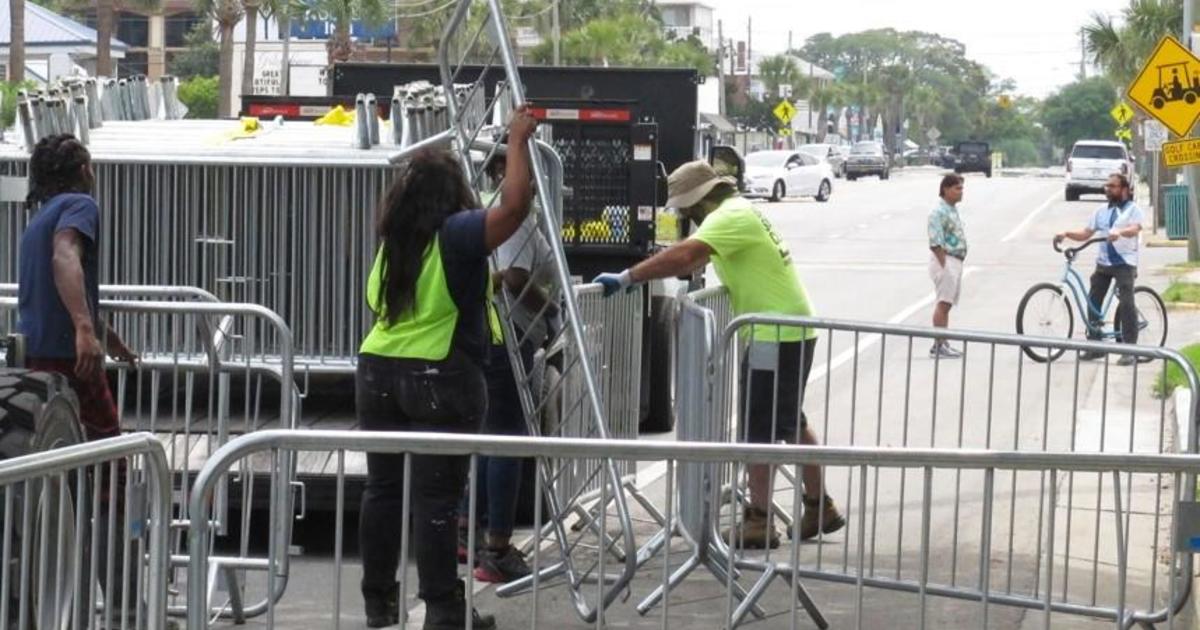Students say Taliban blocked them from college for wearing wrong color hijabs as Afghan women see their rights fade to black
Taliban forces prevented female college students from attending classes on Wednesday in Kabul, apparently turning them away because their headscarves were deemed too colorful. It was the latest evidence of the Islamist group's steady erosion of human rights since it seized power almost a year ago after the U.S. military's withdrawal from Afghanistan.
Videos shared on social media show Taliban members stopping a group of women at the entrance of Kabul Polytechnic University and sending them home because their hijabs were not black.
"Today, because of colored headscarves, they didn't let students attend classrooms," a female student is heard saying in one video posted online. "They warned us not to wear colored headscarves."
Another video, shot clandestinely, shows a male official explaining to students that the black hijab is part of the university's official "uniform," under orders of the Ministry of Higher Education. The students protest, with one heard telling the man "it is not possible in this hot weather" to wear a black headscarf.
Earlier this month the Taliban formally ordered all women in the country to wear garments covering them fully, from head to toe, whenever they go out in public. That edict did not specifically mention what color headscarves or other garments would be deemed appropriate.
Asked by CBS News about the videos on Wednesday, Maulvi Ahmad Taqi, a spokesman for the Ministry of Higher Education, which oversees all of Afghanistan's universities, said the reports were "untrue," claiming some students "were stopped by the leadership inside the university for a few minutes due to non-observance of a specific uniform, after which they were allowed to go back to the classroom."
The spokesman for the Ministry of Vice and Virtue, tasked with enforcing the Taliban's version of Islamic Shariah law, did not respond to CBS News' request for comment on this story.
Speaking with CNN's Christian Amanpour, however, Sirajuddin Haqqani, acting Minister of Interior and deputy leader of the Taliban, said the country's de-facto government was not forcing women to wear the hijab, just advising them to.
"Hijab is not compulsory, but is an Islamic order that everyone should implement," he told Amanpour.
The Taliban's apparent tightening of rules for women doesn't stop with Afghan students. Heather Barr, Associate Director for women's rights at Human Rights Watch, posted to Twitter an internal memo she said was sent between United Nations employees discussing a visit to their Kabul office by Taliban officials this week, who warned female U.N. staff in the country to wear the hijab at work.
"They even wanted to have access to the premises to see if 'hijab' is being worn," the memo she posted online states. Barr's tweet also showed a flier that she said was posted on a wall outside the U.N.'s office in Kabul, warning staffers to wear the hijab.
Nayla Mirza, a medical student at Kabul University, told CBS News that students had received warnings from school administrators to wear the hijab, or the university would face closure.
"These small issues are just excuses, and eventually, the Taliban will close all universities for women," she predicted. Mirza said armed Taliban members escort her and other students when they visit hospitals in the capital as part of their practical studies.
"When we visit a patient, an armed Talib escorts us to the emergency ward," she told CBS News. "On one occasion, when I was checking a patient, an armed Talib told me that I was inciting sedition and attracting the attention of men."



